CUT - Interview
by John Clarkson
published: 26 / 5 / 2023
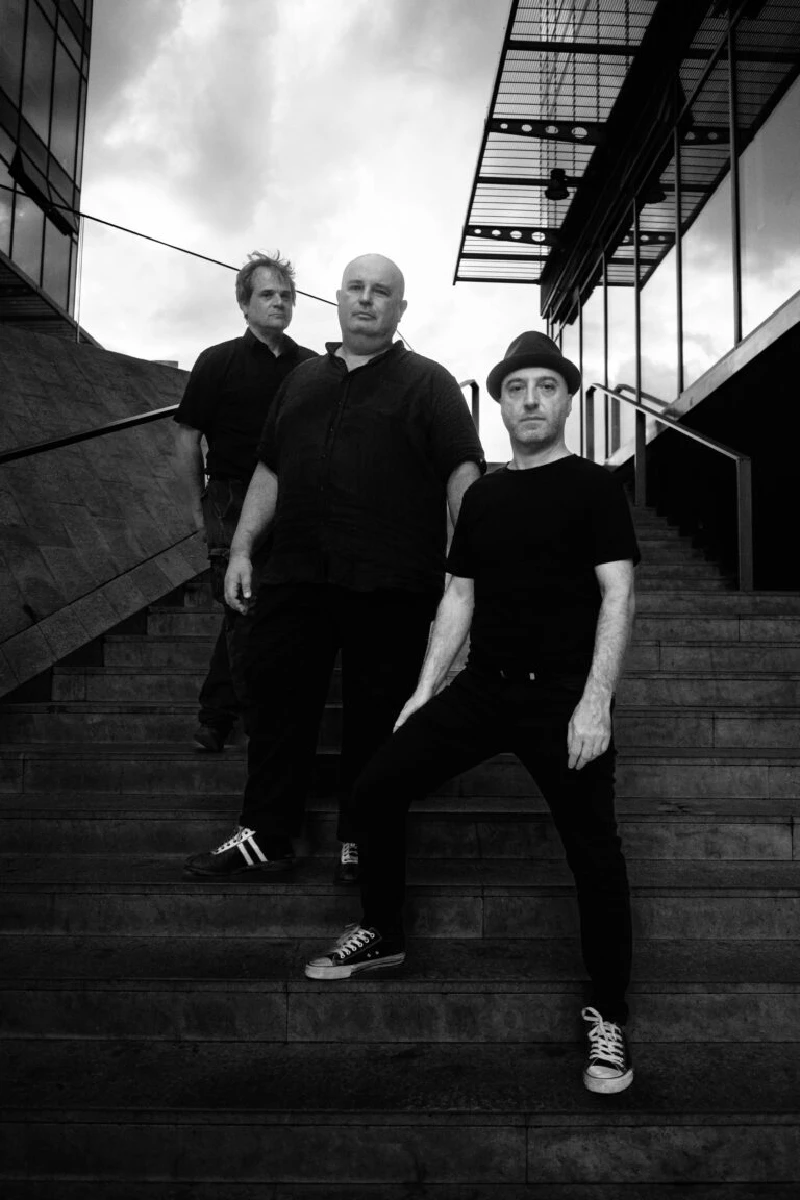
intro
Vocalist and guitarist Ferruccio Quercetti from Italian post-punk/blues trio CUT talks to John Clarkson about his group's hard touring, singing in English and new album, 'Dead City NIghts'.
CUT is a trio from Bologna which strides across a middle ground between angular post-punk trio and a primal blues sound. A fiery tour-de-force on stage, the band, which consists of Ferruccio Quercetti (vocals, guitar), Carlo Masu (vocals, guitar) and Tony Booza (drums, percussion), has recently completed its eighteenth tour of Britain, and just released on Antipop Records its seventh studio album, ‘Dead City Nights’. Inspired partially by lockdown, it reflects on the abandonment and shut down of formerly busy city centres at night as a result of weak economics, mismanagement and sickness, disease and death. We spoke to Ferruccio Quercetti about the band’s non-stop touring, singing in English and ‘Dead City Nights’. PB: Your last album ‘Second Skin’ involved the participation of many friends and guests, but this album features largely just the three of you on most of its tracks. Do you think that is a direction you would have gone in anyway or was that something that was forced on you entirely by lockdown? FERRUCCIO QUERCETTI: Originally, ‘Second Skin’ was supposed to be released in 2016, in time for the twentieth anniversary of the band’s inception. In the end, due to the usual record label related issues, the album came out in 2017 so we did not even manage to honour our twentieth anniversary: this fact alone should give you an idea of how fucking hopeless we are as a band. However, on that occasion we wanted to have on board some of the humans who have been part of our long ride, albeit each one of them in different ways and circumstances. Some of those are people that we admired since we were kids (see Mike Watt) and with whom, at some points of the band’s journey, we have managed to cross paths with. It was a glorious experience, and we loved the results. It, however, represented a detour from our customary working method which always went along the following lines: get to the studio, set up all the backline in one room, record all the songs in our current setlist that we hadn’t put on tape yet, add a couple of tracks which might be too new to be already road tested, do the minimal overdubs of those parts you couldn’t physically play as you were laying down the band takes, mix the whole thing and get the fuck out. Essentially, it’s always been the three of us in a room playing live: sometimes we even do the vocals live as we record the basic tracks. It never took us more than 5/6 days to record an album: ultimately, I still think that that is a working method that suits us fine. On ‘Second Skin’, we did most of the basic tracks live too, but then we had to organise, orchestrate and juggle to accommodate every guest according to their schedule: this made the process of recording that album lengthier than usual. For what has turned out to be ‘Dead City Nights’ we were already determined to go back to our old ways: then the pandemic happened and made our customary method not just our choice but also the only viable way to get this done. The only big difference from all the other albums which we have done this way was that, before recording, we could not develop and test most of the songs live in public as much as we normally like to do, for obvious reasons. We are doing it now, while we’re already on tour, and this unusual process is making us discover new things about our own songs, night after night. PB: You have generally begun your songs by playing them live and developing them while touring. You have not had that option with the songs on ‘Dead City Nights’. Do you think the songs will change much on the road? FQ: Structure-wise I don’t think that the songs will change too much, unless we realise that – in a concert situation - certain parts just don’t work as well as we initially believed. What will certainly happen is that we will become more comfortable around the new tracks by playing them gig after gig. This will allow us to incorporate them in the flow of our show more seamlessly. For us this is the most important thing. From the moment we get on stage until the end of our show, we try to create a stream of sound and presentation in which the songs flow into each other in a dynamic of tension and release, with very little pauses, or no pauses at all. Wow, this sounds so pretentious actually! Well, basically we rarely stop and try to keep things exciting throughout the whole show: we humbly follow in the footsteps of great masters such as Ike and Tina Turner, James Brown, The MC5, The Ramones, Mitch Ryder and The Detroit Wheels, and many others. PB: You have been together now for 27 years. Why do you think that you have achieved such durability? FQ: It’s simply because of the hunger. The hunger for music which we suffered during our formative years and that marked us for life. This is what is keeping us together. You see, we all come from small villages from Southern Italy (me and Tony) and from Sardinia (Carlo). When we were growing up as teenagers, think about mid-to-late eighties Italy, we were isolated and removed from all the cities where music was happening. We were geographically separated from all the places from where the bands and the records were coming from. At the same time though, listening and fantasising about underground or alternative music – as they called it back then - and the subcultural world that came with it was the only thing that allowed us to break free from the boredom of our reality. At the cost of sounding boomerish, there were no internet or social networks back there. We used to crave underground music, concerts, records, and we had almost no one to share our passion with, in our limited social context. For many years, just being in a band with like-minded people and writing and performing music in the vein of the bands we loved, was all that we dreamed about. We were literally hungry for that. Therefore, when we moved to a place like Bologna and finally managed to put together bands and have musical conversations with other people who listened to the same groups and genres as us, we basically already achieved our pipe dream. After so much desire and longing, when you finally achieve your dream, you tend to hang on to it: you don’t split up after two years because your amp is too heavy to carry up and down the stairs of a rehearsal room or because your latest post did not get enough likes. We felt the hunger for too long and we don’t give up easy now that we can generate our own soul food. PB: Your songs are all in English, yet much of your website and social media pages are largely l in Italian. Why do you choose to sing in English? FQ: Actually, our website is bilingual (English and Italian). Whenever we update our social networks, we choose which language we’re going to use according to the audience to which that specific info is mostly directed to: if we are announcing a show in our hometown, for an audience which is for the most part Italian, it would be ridiculous to do it in English. When we are announcing a record release we tend to do it in English or in both languages. If it’s a Euro or UK tour we’ll do it in English. Frankly, I don’t see how this is an issue at all and besides now you can translate any social network text in your language with just one click. Having said that, social networks are just a necessary evil for us: ultimately, they are nothing but another way of letting people know what we are doing: we don’t attach too much meaning to them, on the contrary. We sing in English because it works well with our sound and it feels good to us. All languages (including non-verbal languages such as music) are cultural, political and social constructions anyway: they are instruments at our disposal and we are free to choose which instruments we want to express ourselves with, as long as we don’t suck at that. PB: What is the punk/post-punk scene like in Bologna. Is it large or very much in the underground? FQ: In the contemporary Italian context, Bologna has played a very important role when it comes to popular music and many of his subgenres. It is a very progressive city with one of the biggest universities in the country. The University of Bologna was the first higher education institution in Italy to have a media, music and performing art faculty, thus attracting a demographic of students who were interested in various forms of artistic expression. Politically, it’s considered to be the capital city of the Left: in Italy many artists gravitated towards the Marxist Left because of its criticism of the national status quo which was guaranteed by the Democratic Christian Party and subsequently by Berlusconi and his political allies. In the Post War period, the city was very receptive to the new sounds coming from the US, such as Jazz and then rock and roll. During the British Invasion and the psychedelic years, Bologna developed a strong ‘Beat’ scene: in a nutshell, Beat was our version of the post-Beatles sounds throughout the mid-to-late sixties. In the early seventies there were several politically motivated singer-songwriters and prog rock/folk/jazz rock bands which serenated the struggles of the local student movement. Later on, in the late seventies/early eighties, Bologna became one of the main punk centres in Italy: it was perhaps the first city which fully embraced punk/new wave and post punk in our country. Local bands like Gaznevada, Nabat, Confusional Quartet, Skiantos, and RAF Punk were crucial in the development of the Italian scene, acting as leading and inspirational acts for various subcultures (OI!, Anarcho Punk, Post punk, etcetera) also at national level. Some of these bands, particularly Skiantos, even enjoyed some commercial success. Actually, Bologna always produced big Italian pop names as well as underground acts: it’s a small city therefore different levels of the music scene often get to mingle and mix. The late eighties/nineties spawned a lively alt rock/indie/grunge, and even hip-hop scene that, albeit with some subsequent generational shifts and various internal waves, continues to this day: having formed in 1996 we are living proof of that. It’s still a happening city today, but we’re too old to have a proper grasp on how the new scene operates. However, we are in touch with several younger bands such as Chow, The Procrastinators, Lleroy, Jackson Pollock, Big Cream, Leatherette, Firecracker and many others. We often get involved in their initiatives and cooperate with them. PB: You have played a massive eighteen tours of the UK. What is the appeal to you of British audiences? FQ: Our long-standing relationship with UK audiences developed quite organically throughout the years. CUT’s first visit of the UK dates back to 2008, when another Bologna band called Settlefish asked us to go on tour with them. They were younger than us but they used to come to our shows when they were kids: by the way, Bruno Germano - our sound engineer/producer - was in that band, playing guitar and keys, and Jonathan Clancy – our label manager – was their lead singer. At the time, they were on Deep Elm, a US label which was quite popular in the emo/punk world, therefore on that tour we often played to good crowds. After that experience we stayed in touch with some of the promoters and a couple of years later we managed to come back for another round of shows. With pleasure, we noticed that some people who had seen us on the first tour showed up again. We found that remarkable because during the two-year hiatus between the tour with Settlefish and our second trip to the UK we did not enjoy any distribution let alone promotion over there: the fact that people were coming back after two years for a band they probably had only seen once meant that our first show stuck with them. So probably you should ask this question to our UK audience: there must be something about what we do that resonates with them. With each tour our ties with the UK became tighter and tighter. During our third visit we even recorded a live album, in Liverpool and Preston. It’s called the ‘Battle of Britain and I think it’s one of the best things we’ve ever released. Throughout the years, without even noticing, we amassed a considerable number of UK tours: in the decade before Brexit and Covid we used to come two or even three times per year. Although we’ve had some memorable shows also in London and in the south of the Island, it is mainly in the north of England and in Scotland that we have taken root. We have also built up a good logistical base at those latitudes, with good friends who provide us with means of transport and backline when we fly over instead of driving. Audience-wise, by now I think we can count on a small but very faithful UK following, especially in Scotland and in the North of England. In particular, there is handful of punks – young and old and all coming from the Merseyside area- who sometimes follow us for four or five shows per tour. They show up wearing our T-shirts and sing our lyrics: it’s moving to realise that through our music we’ve been able to connect with people who live so far away from us. It’s the kind of communication we’ve always strived for! During the pandemic we had more messages from the UK asking when we would resume touring than we did from Italy: that is why we’ll always come back and play for our UK friends! There is also an element of pride about it. We’ve grown up listening to music coming from the UK: therefore, having carved a little space for us in the hearts of audiences who come from the same places from where some of our favourite bands stem from, may be sign that perhaps we’re doing something good. PB: The album cover of ‘Dead City Nights’ features what looks like a really old photo. Who is the 4woman in the photo and why did you choose it as an album sleeve? FQ: The sleeve is taken from a magazine feature about a famous Italian murder case from 1953. Wilma Montesi, a very young woman (she was just 21), was found dead on a beach near Rome. Her corpse was found just outside the seaside residence of an important member of the Democratic Christian Party who was also a minister of the Italian government of the time. There had been a party in this villa and Wilma, a working-class girl who nurtured the dream of becoming an actress in the then booming Italian movie industry, was among the guests. The son of this politician was a famous film soundtrack composer and he was the party’s host. He was cleared from the murder accusations by the deposition of Virna Lisi, another important Italian actress who was there too. To this day the mystery remains unsolved. However, the case was taken as an example of how – through media and entertainment - consumerist society creates myths of individual social climbing which are particularly attractive to members of the working classes who are just hoping to improve their living conditions. More often than not, these stories have a tragic outcome for the working-class persons involved who, just like Wilma, end up being used and disposed by the privileged ones who are often directly responsible for creating such illusions. The cover photo depicts one of the main witnesses of the murder trial that ensued. She was a servant in the politician’s villa: another working-class woman who was dragged into into this high society decadent nightmare just because she had to work to make a living. Chased by reporters, she found refuge in her hometown, a small southern village: before the trial she decided not to speak to the press anymore. To avoid any contact with the press and the public, she locked herself inside her house. The photo on the album cover portrays the moment in which she walked through the5555 door of her apartment, to begin her period of seclusion. PB: ‘Dead City Nights’ takes a few listens to get into. At first all the songs sound the same, but after you have listened to it three or four times the songs really stand out from each other. It is something that several critics have picked upon over the years. Do you think it is because you have such a distinctive sound that it takes a while to get used to and is that something that you aim for with your music, that it takes several listens before you really appreciate it? FQ: It’s funny that you think our songs all sound the same at first, because most of the time people say the opposite, meaning that we have a degree of variety in our sound that makes it impossible to assign what we do to a specific genre. This has been a blessing and a curse for us since the very beginning. We’ve always been too noise rock for the punks and too punk for the noise rockers. Too garagey for the post punk aficionados and too post punk for the garage rockers and so on and so forth. As a result, we’ve never been embraced by any particular scene, even though we can count on some isolated supporters in different genres. You can see that by looking at the demographic composition of our audience. We have old school punks, hardcore punks, sixties garage rockers, indie fans, metalheads, noise rockers, post punk fans, etcetera. However, we are not popular to any of the larger crowds from each genre or subculture: we don’t belong to anyone and therefore we do not enjoy the benefits of being adopted by a specific milieu Musically speaking, that's fine with us: it means that what we do cannot be easily labelled and that we connect with people who don't give a damn about conventions and uniforms. However, I won’t deny that sometimes it would have been handy to be able to count on the international circuits of venues, labels and promoters specialising in a single genre and thus go on autopilot when it comes to finding the 'right' channels to schedule a tour or simply to let our music be heard. Instead, we had to build our patchy network of contacts and aficionados one person at the time by playing all around Italy and Europe to find those few who don't care about labelling music too much. It is an increasingly rare human typology, but a very satisfying one to be associated with. I am aware that sometimes our songs might sound like straightforward punk and roll (mind you I have nothing against straight forward punk and roll, on the contrary!) and then - after repeated listens - one might find out that they are actually more layered than that. It’s not something that we do on purpose, it’s just the result of our different influences, backgrounds, and life experiences I guess. The best definition of our music has been given by this very webzine, Pennyblack Music, while reviewing our 2006 album ‘A Different Beat’: you said that we sound like “John Lee Hooker stuck in a post-punk straitjacket’. So cool! We adopted it and we use it to this day. Actually, there is a song on ‘Dead City Nights’ for which this definition seems particularly appropriate: it’s called I Know What I Know. So thank you Pennyblackmusic! You gave us a concise way to describe what we’re doing! PB: Your producer Bruno Germano worked as well on ‘Second Skin’. What do you think he brought to this new album in contrast to the last album? FQ: Bruno was the only external influence allowed on this record. Actually, I have a hard time calling him an ‘external’ voice: our collaboration goes way back so long that we can almost consider him as a fourth member of the band, at least when it comes to studio recordings. Compared to the ‘Second Skin’ sessions, when he had to coordinate all the musical input from our guests, this time he worked in a way which was closer to a classic sound engineer/co-producer role. He certainly is a voice of reason when we get carried away. He’s a severe judge of our live takes: he really makes you strive to obtain the best instrumental take. He’s also capable of putting into practice the overdub ideas that we may have since he is an accomplished multi-instrumentalist: I call him Mozart for a reason. Moreover, he comes up with his own ideas such as the multi-layered guitar tracks you can hear on I Ain’t got You. PB: What are your plans for the rest of this year? Is it to tour as widely as possible? FQ: Of course. The healthiest way I know to build and keep an audience for a band is touring and playing live. Making decent albums doesn’t hurt either. PB: Thank you.
Band Links:-
https://www.soundofcut.comhttps://www.facebook.com/SoundofCUT
Play in YouTube:-
Picture Gallery:-
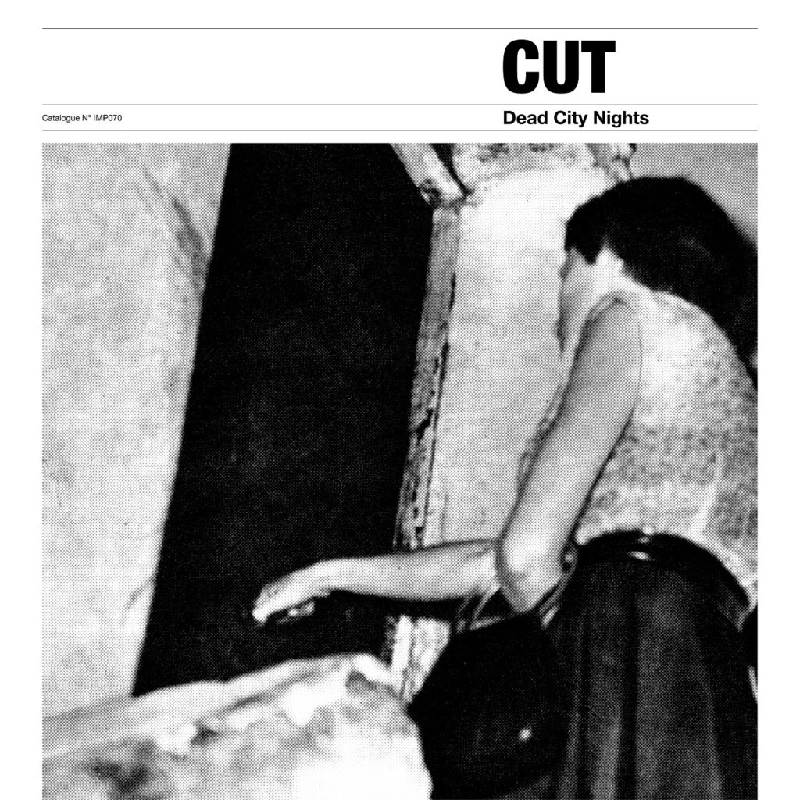
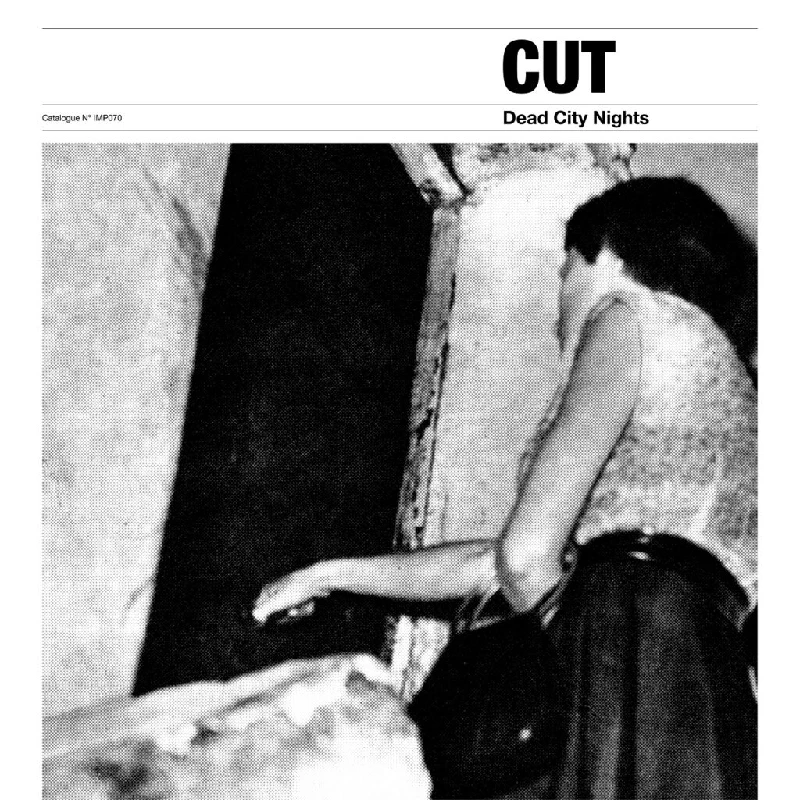
reviews |
|
A Different Beat (2007) |
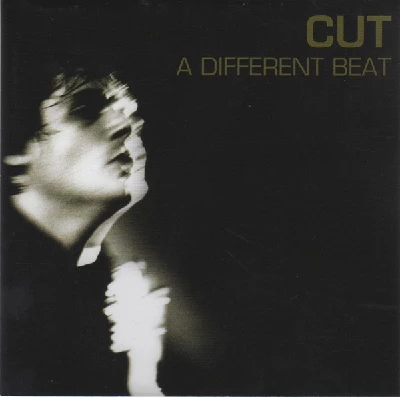
|
| Slow growing, but eventually compelling debut album from 80's-influenced Italian post-punk trio, Cut |
most viewed articles
current edition
Carl Ewens - David Bowie 1964 to 1982 On Track: Every Album, Every SongArmory Show - Interview with Richard Jobson
John McKay - Interview
Colin Blunstone - Thalia Hall, Chicago, 16/7/2025
Bathers - Photoscapes 1
Billie Eilish - O2 Arena, London, 10/7/2025
Loft - Interview
Visor Fest - Valencia, Spain, 26/9/2025...27/9/2025
Sir Tim Rice - Interview
Robert Forster - Interview
previous editions
Manic Street Preachers - (Gig of a Lifetime) Millennium Stadium, Cardiff, December 1999Heavenly - P.U.N.K. Girl EP
Beautiful South - Ten Songs That Made Me Love...
Peter Perrett - In Dreams Begin Responsibilities Interview Part One
Boomtown Rats - Ten Songs That Made Me Love....
Oasis - Oasis, Earl's Court, London, 1995
Coldplay - Wembley Arena. London, 16/8/2022
Prolapse - Interview
Trudie Myerscough-Harris - Interview
Pixies - Ten Songs That Made Me Love...
most viewed reviews
current edition
Davey Woodward - Mumbo in the JumboSick Man of Europe - The Sick Man of Europe
Lucy Spraggan - Other Sides of the Moon
Amy Macdonald - Is This What You've Been Waiting For?
Suzanne Vega - Flying With Angels
Blueboy - 2
Bush - I Beat Loneliness
Phew, Erika Kobayashi,, Dieter Moebius - Radium Girls
Alice Cooper - The Revenge of Alice Cooper
Cynthia Erivo - I Forgive You
related articles |
|
Fairport's Cropredy Convention: Profile (2015 |
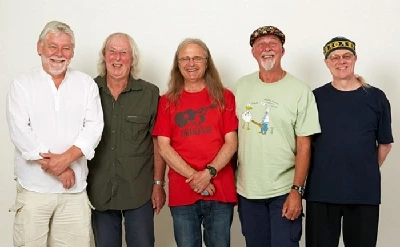
|
| Nick Dent-Robinson profiles Fairport's Cropredy Convention, which will be taking place on the 13th to the 15th August, and speaks to Emmylou Harris, Toyah Willcox, Pete Brown and Skinny Lister and also Fairport Convention bassist Dave Pegg, all of whom are appearing in this year's line-up |
Pennyblackmusic Regular Contributors
Adrian Janes
Amanda J. Window
Andrew Twambley
Anthony Dhanendran
Benjamin Howarth
Cila Warncke
Daniel Cressey
Darren Aston
Dastardly
Dave Goodwin
Denzil Watson
Dominic B. Simpson
Eoghan Lyng
Fiona Hutchings
Harry Sherriff
Helen Tipping
Jamie Rowland
John Clarkson
Julie Cruickshank
Kimberly Bright
Lisa Torem
Maarten Schiethart